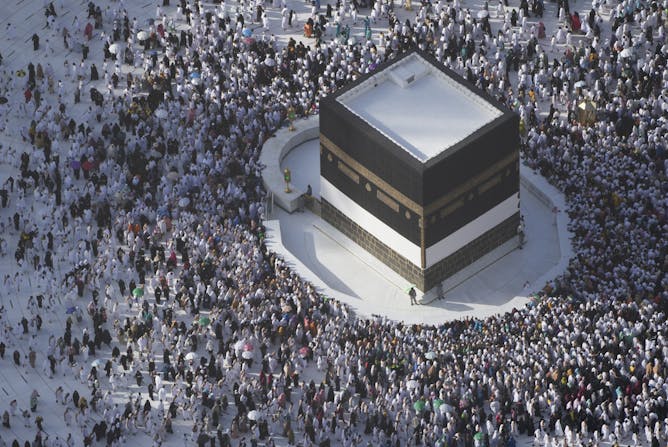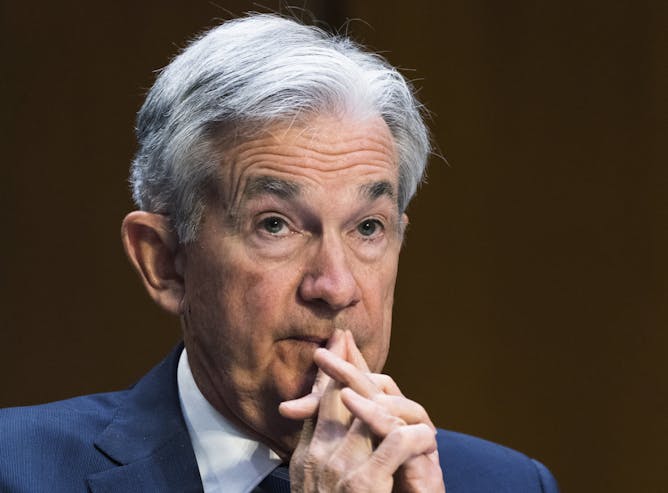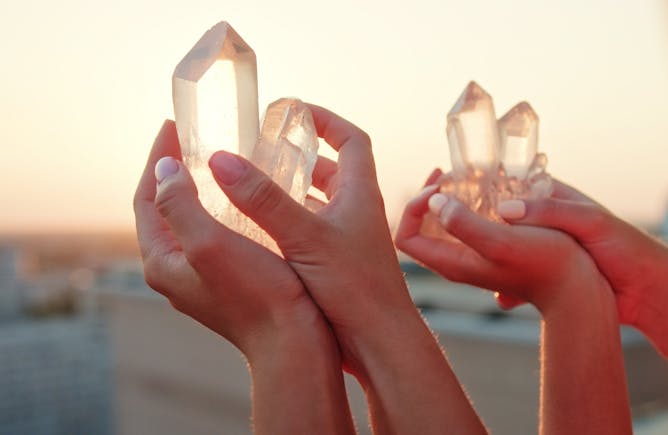|
With pandemic restrictions easing, over a million Muslims have gathered this week in the holy city of Mecca for the annual hajj pilgrimage – a once-in-a-lifetime obligation for all Muslims who have the physical and financial ability to undertake the journey. And today Muslims around the world celebrate the festival of Eid al-Adha in remembrance of the story of Ibrahim in the Quran.
But the hajj is different in one significant – and controversial – way this year. A hajj lottery – a random visa draw for Western pilgrims done through a Saudi government-backed website – has ignited debates about the commercialization of the hajj. The Saudi government, while keeping out tour agencies, is offering its luxury travel packages for pilgrims during their stay. This has led to concerns about lessening the spiritual nature of the pilgrimage.
Noorzehra Zaidi of the University of Maryland, Baltimore County, writes about the long history of the hajj and the caravans and markets that have always been part of it, as traders found consumers in the pilgrims, and many pilgrims themselves engaged in trade to pay their way.
This week we also liked stories on how rap artists have dealt with abortion, the enduring popularity of crystals, and the futility of submitting junk data to period-tracking apps.
|

A view of the Kaaba at the Grand Mosque during the hajj pilgrimage in the Muslim holy city of Mecca in Saudi Arabia on July 6, 2022.
AP Photo/Amr Nabil
Noorzehra Zaidi, University of Maryland, Baltimore County
The start of the hajj is reigniting debates around its commercialization, but pilgrimages are also a time for seeking business opportunities, writes a scholar of Islam.
|

Fed Chair Jerome Powell is hoping to orchestrate a very delicate dance.
AP Photo/Manuel Balce Ceneta
Christopher Decker, University of Nebraska Omaha
The US economy gained more jobs than expected in June, although it was still a decline from May. An economist explains what the new numbers mean.
|

Proponents claim the stones can promote health and well-being.
janiecbros/Getty Images
Joseph P. Laycock, Texas State University
Crystals are part of a larger tradition of metaphysical religions that have a long history in the U.S.
|
|
|
-
Rick Thoman, University of Alaska Fairbanks
Fires today are hotter and more destructive, thanks in part to a warming climate.
-
Monika L. McDermott, Fordham University; David R. Jones, Baruch College, CUNY
Two scholars of Congress and public opinion dissect the reasons gun control finally passed and was signed into law, after decades of inability to enact such legislation.
-
Ken Chitwood, Concordia College New York
Muslims throughout the world will celebrate the holiday of Eid al-Adha. Here's an introduction to this important feast and its partner, Eid al-Fitr.
|
|